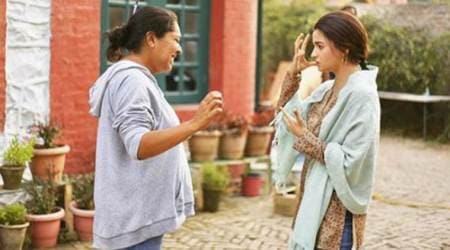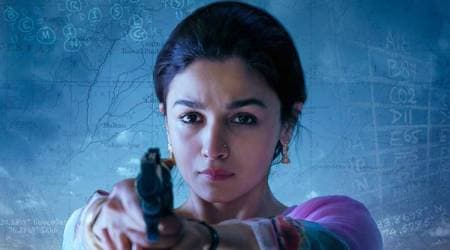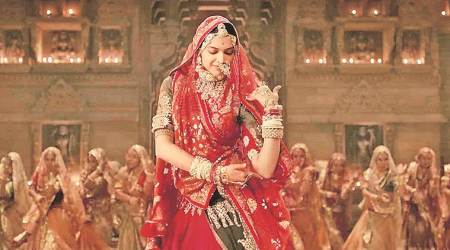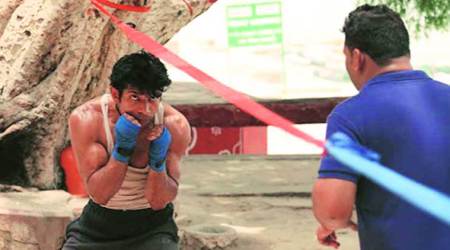
One Day, When the Glory Comes
Written by Suanshu Khurana | Published: April 27, 2018 12:16:57 am ..
Written by Suanshu Khurana | Published: April 27, 2018 12:16:57 am Alia Bhatt and Vicky Kaushal in a still from the movie Raazi.Related News

Meghna Gulzar on directing Alia Bhatt in Raazi: It has been a very fulfilling journey

Trailer of Alia Bhatt and Vicky Kaushals Raazi released highlights Review, reactions and more

Hichki music review: Present Continuous
Raazi
Three stars (***)
Composer: Shankar-Ehsaan-Loy
Lyrics: Gulzar
It has been a while since we heard compositions from the talented trio, Shankar-Ehsaan-Loy (Mirzya and Rock On!! 2 happened in 2016). The three artistes — who have cleared many a litmus test in terms of delivering brilliant scores — combine forces with lyricist Gulzar (they have worked together in five films before) for the soundtrack of the upcoming film, Raazi — an espionage thriller based on Harinder Sikkas novel Calling Sehmat. Starring Alia Bhatt and Vicky Kaushal, the film is about a Kashmiri girl who is trained as an undercover agent and married to a man in the Pakistani army ahead of the 1971 Indo-Pak war.
Its always difficult to create patriotic songs, as they can sound too soppy, or too lofty, or too stoic. For the soundtrack of the film, the trio strikes a wonderful balance between something rousing, sticking to the zone of thematic tribute, and juxtaposes it with soft, moving notes and Gulzars thought-provoking lyrics, thus creating a mix that hits the brief to the tee for a film such as this. Musically, its intelligent at many points but barring one song, it doesnt have as much recall value as we are used to with the trios compositions.
The four-track album opens with Aye watan, which has been sung by Arijit Singh. Just when we are about to wonder if Sukhwinder Singh would have been a better choice for this, Singh surprises us by hitting the high notes with much clarity and aplomb. The energy is refreshing. While the background is rousing with bass drums and a stirring chorus, the piece itself sticks to gentle and delicate movements. A wonderful attempt.
Kedar epitomises love. The composers use the raga to open the female version of Aye watan. This one is sung by Sunidhi Chauhan along a soft and swelling backdrop of a school choir style chorus. Its a reminder of the qawwali Na toh karvaan ki talaash hai. It has the esraj being used extensively. With children singing along, it sounds as if it is being sung in a school assembly. As is the usual issue with Chauhan, she sounds strained when singing high notes. Towards the end, a childs voice concludes the song wonderfully. In times when credit is becoming important, we feel the name of the singer should have been mentioned.
This is followed by a Kashmiri wedding song that opens with Vibha Sarafs soft vocals. The first few lines of the composition, sung in Kashmiri, are taken from the famed wedding song Khanmaej Koor. The wistfulness comes through. It is soon linked with Harshdeep Kaur singing in Hindi. Composition and orchestration wise — sarangi and esraj interludes, basic synth backdrop, chorus and enlivening percussion, muted form — it is in the right zone but Kaur cant pull off the effect needed in a Kashmiri number, like she did in the Punjabi wedding version of Kabira.
In the title song, the composers use Singh very interestingly and intelligently — initially like a faqir singing folk in his high-pitched voice on the streets of Punjab but crisscrossing with a Kashmiri tinge (through his voice and the backing of the sarangi), and later as a typical Bollywood singer, with a bouzouki. He merges these two styles in the third part of the song, using strong percussion with dhol, guitar and a Kashmiri orchestration. The best piece in the album, Lagan ki baazi hai, Chot bhi taazi hai, Lagaa de daav par dil, Agar dil razi hai, represents how wonderful is the pairing of Gulzar and Shankar-Ehsaan-Loy.
Overall, its a brilliant effort. But one wishes it had more songs sand more Kashmiri influences. Buy it for Raazi, and its beautiful contours.
For all the latest Entertainment News, download Indian Express App
More Related News
- Tags:
- Music review
- Raazi



